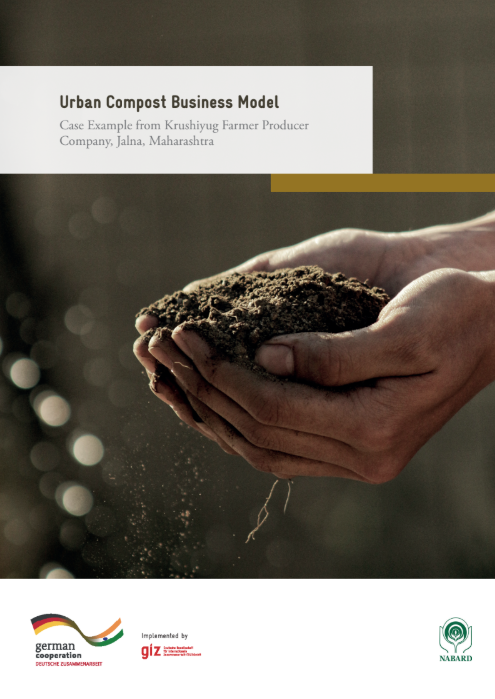Urban Compost Business Model Case Example from Krushiyug Farmer Producer Company, Jalna, Maharashtra
The Indo-German development cooperation project ‘Soil Protection and Rehabilitation of degraded soil for food security in India (ProSoil)” is implemented by the Deutsche Gesellschaft für Internationale Zusammenarbeit (GIZ) GmbH on behalf of the German Federal Ministry for Economic Cooperation and Development (BMZ) in partnership with the National Bank for Agriculture and Rural Development (NABARD). The project is part of a larger global programme under BMZ’s Special Initiative “Transformation of Agricultural and Food Systems”. The project is implemented in the Indian states of Maharashtra and Madhya Pradesh, and works with local implementation and mainstreaming partners.
One of the initiatives under the project is establishing a business model for compost manufactured using organic waste matter from urban centres. This compost can then be employed for rural agricultural fields, thereby closing the urban-rural nutrient loop.
This detailed project report presents an urban compost business model from the district of Jalna in Maharashtra. Here, the project’s NGO partner Watershed Organisation Trust (WOTR) worked with the Krishiyug Farmer Producer Company (FPC) in establishing supply chains and sales of city compost.

